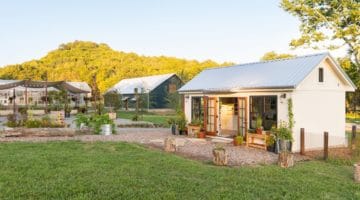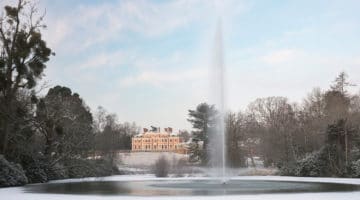Cultivating Honey For Our Future
March 3, 2023 by Laura Fishman
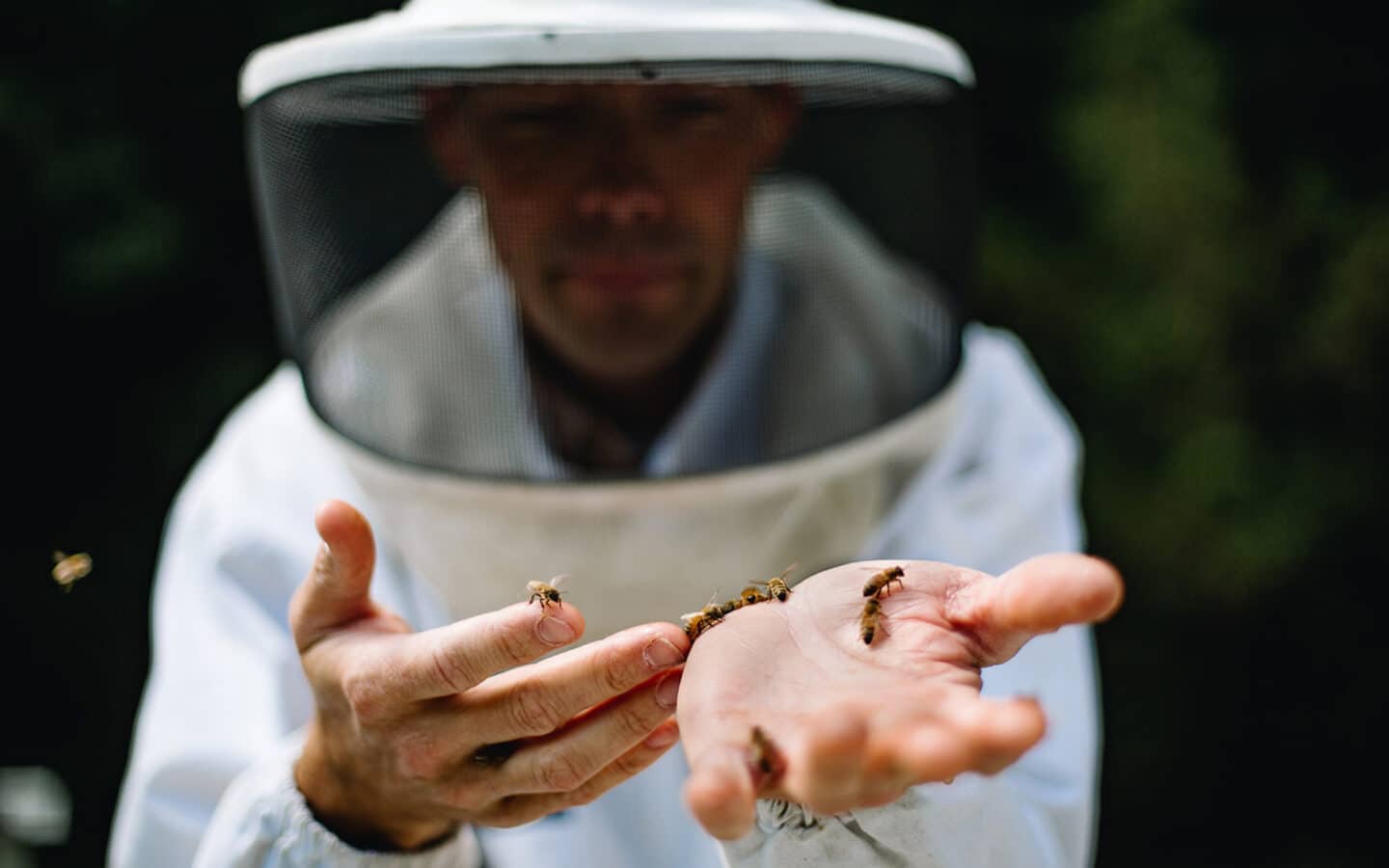
Have you ever thought about where your honey comes from? There is a ‘buzzing’ movement around cultivating honey on farms, which Southall Farm & Inn in Franklin, Tennessee and The Brando in Tetiaroa, French Polynesia are spearheading. We chatted with Southall’s Head Beekeeper, Jay Williams, to get the sweet details about how beekeeping programs contribute to a farm’s sustainability initiatives, just in time for Spring!
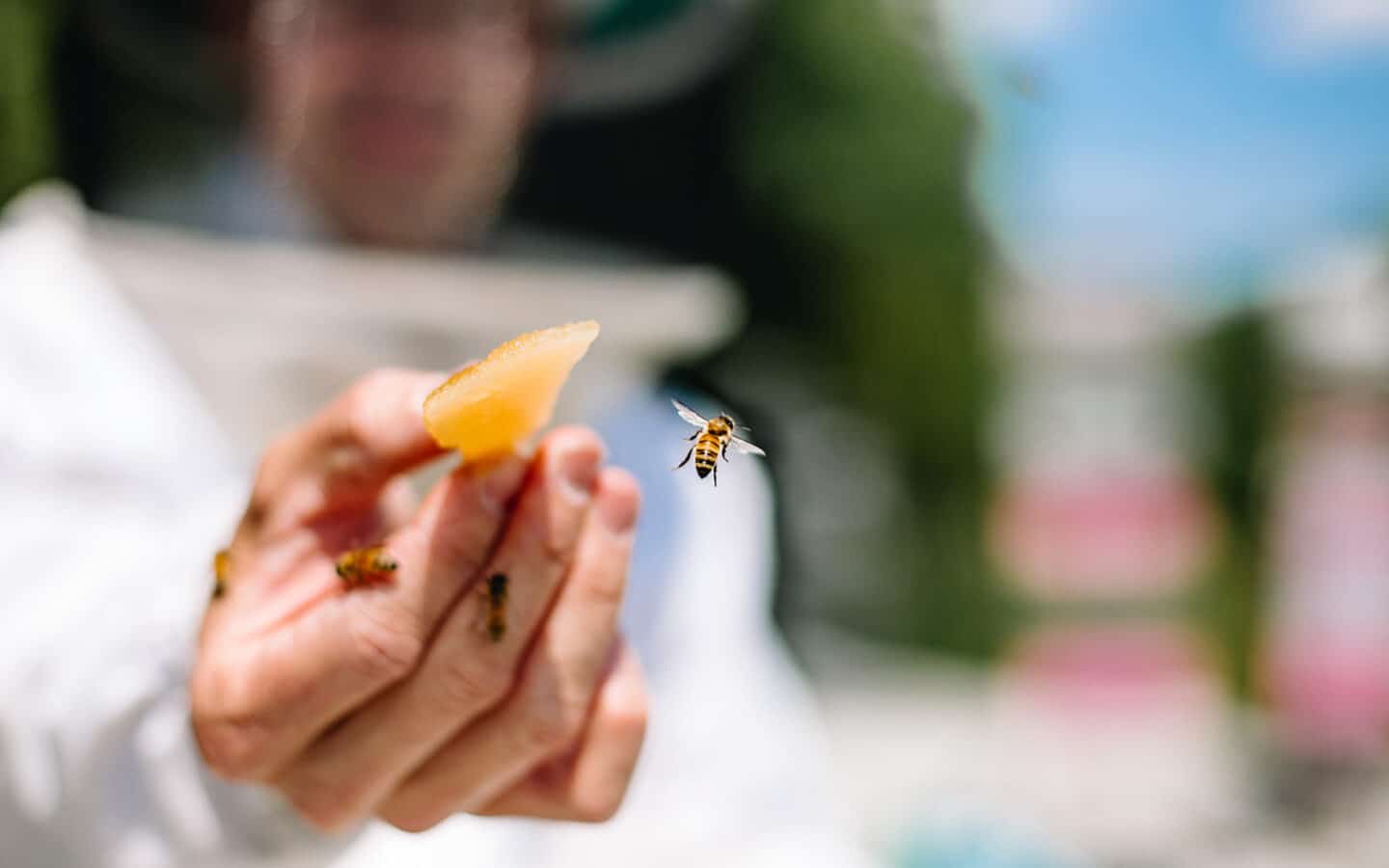
Jay Williams, Head Bee Keeper at Southall Farm & Inn
What is the vision that you have for the bee program at Southall Farm & Inn?
While Southall has just recently opened its doors to the public, the pollination program has actually been alive and growing behind the scenes for the past 7 years! Our vision has always been to raise healthy happy bees that support our farm, educate the public, and produce award-winning honey.
How do bees contribute to the ecosystem of the farm?
The farm actually drives almost all aspects of guest offerings at Southall. Whether it be growing produce for the kitchens, educating guests about seed saving, or cultivating products for use in the spa, our bees play a vital role in the overall output of our fields. Luckily, we have some of the best farmers in the country who realize just how vital a pollination program can be when properly utilized.Southall honey has already won two Good Food Awards, which I believe is a direct result of the care, attention, and respect displayed by the entire team.
A fun fact about Southall is that we are one of the only operations in the southeast that actively raises and utilizes native Mason and Leaf cutter bees to pollinate our farm fields! These bees rarely sting and don’t make any honey but are even more efficient pollinators than our honeybees! Native bees are the unsung heroes of the farming world and my secret (or not so secret) goal is to sing their praises to all guests that are passing through our doors.
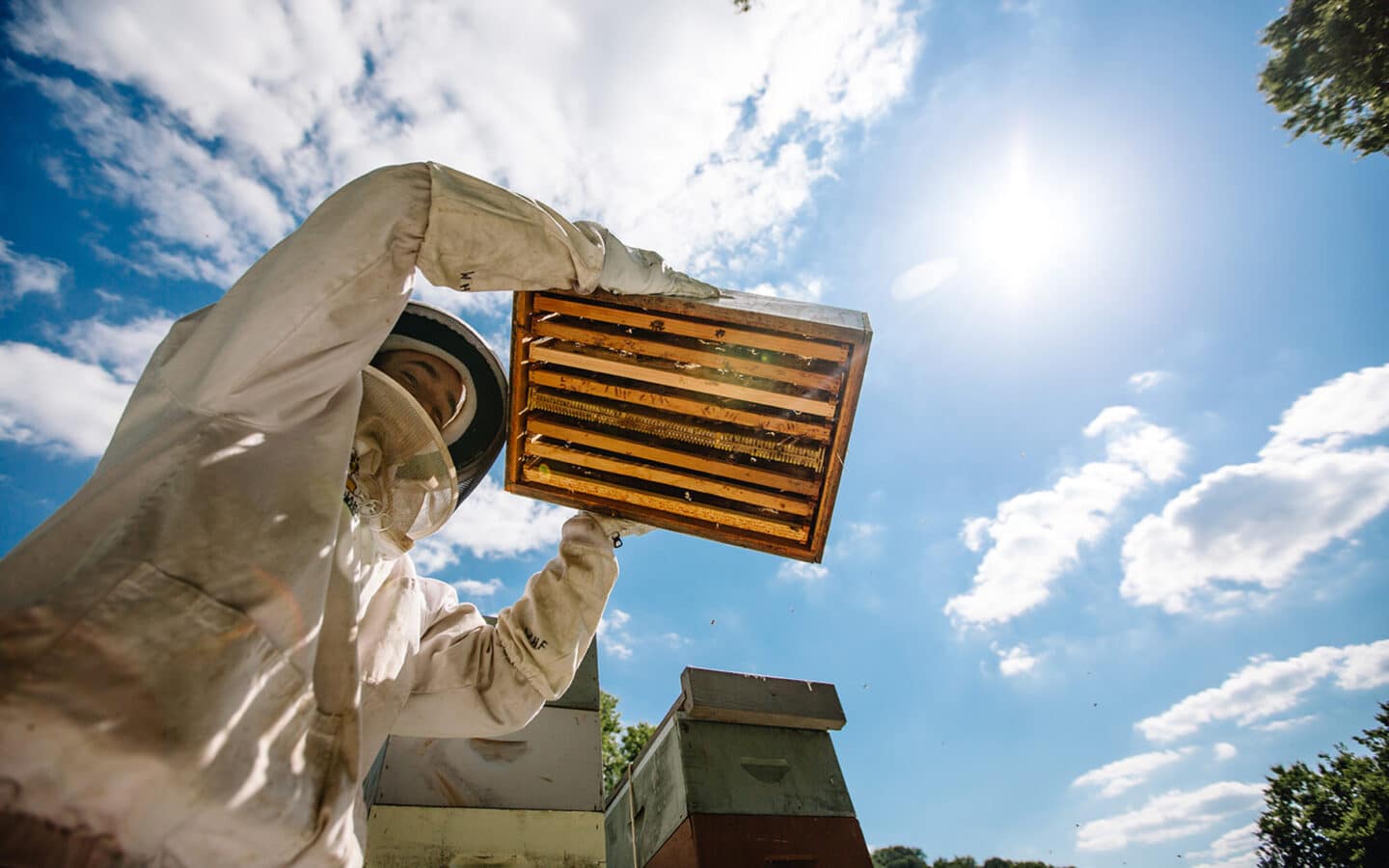
Can you describe the honey tasting session that guests can try out?
The Southall “Honey Tasting Trio” is one of the coolest projects I’ve ever collaborated on. Basically, we are on a mission to dispel the notion that all honey is created equally and tastes the same.
During the 60-minute experience, guests are taken on a guided journey around the southeast to taste unique award-winning honeys while enjoying freshly prepared small bites and perfectly paired wines. You’d be amazed how different each honey tastes as well as how each can change when paired with the right food and wine. Our honey tasting is intended to be a stand-alone offering, yet at the same time subtly prepare you for dinner at our signature restaurant. The added value is that guests get an hour of honest, one-on-one conversation with the chef, beekeeper, and sommelier. It’s rare these days to interact with the actual producer of your food and get the chance to connect one-on-one.
What is your favorite honey?
Admittedly, I’m a little biased. I’ve traveled around the world tasting honey and I’d put Southall honey up against any honey there is. Our honey has a complex taste that changes the longer you have it in your mouth. This creates an endless amount of pairings our chef and sommelier can create. It’s really fun to watch them work their magic with the “liquid gold” our bees produce.
How did you first discover Southall Farm & Inn?
I’ve been a beekeeper for the past 15 years in and around Nashville. After trying some of my honey, Southall originally approached me to bring “just a couple hives” onto the property and produce a few jars of honey. Four (4) million bees later, our pollination program has grown to interact with almost all aspects of the property. We provide guided apiary tours, beekeeping classes, honey tastings, and team building workshops. It’s really a dream come true to be able to work here and be supported and inspired by some of the best talents in the industry.
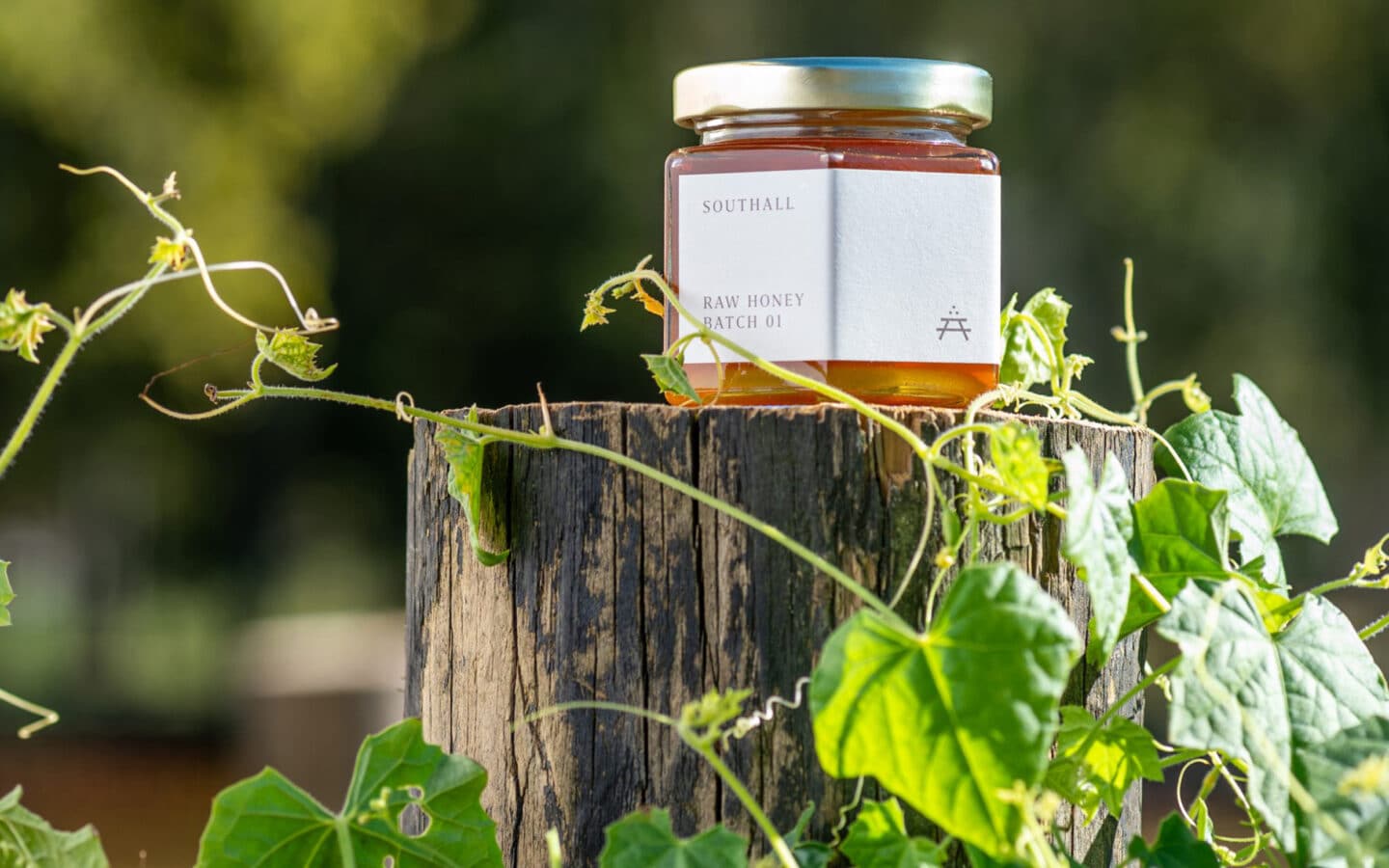
All about the Bees: Guest Experiences at Southall Farm & Inn
Ask a Beekeeper (Complimentary): Ask one of Southall’s bee keepers all of your burning questions about how they manage the 4 million bees, carry out sustainable best practices, or maybe about how to start your very own hive.
Lessons from The Hive (Additional Cost): Join Southall’s beekeeper on a moderate hike through the hillside.
Bee Cruise (Additional Cost): Buzz around Southall’s farm with a beekeeper and learn all about their unique pollination program and the essential role that these pollinators play in agriculture and their working farm. Taste award-winning honey and learn interesting ways to save bees.
Beekeeping 101 (Additional Cost): Guests will be introduced to the intricate world of beekeeping at Southall. You will learn how honeybees operate, why they are in trouble, and what you can do to help. Your beekeeper will dive into what Southall is doing to protect their pollinators and how they are pivotal to their success. After a demonstration of a hive, guests will sample their award-winning honey.
Installing a Beehive (Additional Cost): Join Southall’s beekeeper as they install a 3 lbs. package of honeybees into a brand-new beehive. This happens once in the beginning of the season. Guests will be suited up and assist the beekeeper with installing the bees, checking on the queen, and providing their first meal of sugar water.
Native Bee Experience (Additional Cost): Learn all about the native bees of Southall, how they impact life on the farm, and how you can help.

Beekeeping at The Brando in Tetiaroa, French Polynesia
Tetiaroa is home to an incredible biosphere where its wildlife harmoniously balances with nature. The Brando keeps its pollination program under-the-radar, however, guests have access to taste its locally- produced French Polynesian honey, which tends to be one of the most memorable experiences. While there are currently no guest experiences centered around honey production, The Brando’s beekeeper comes to Tetiaroa every two months.
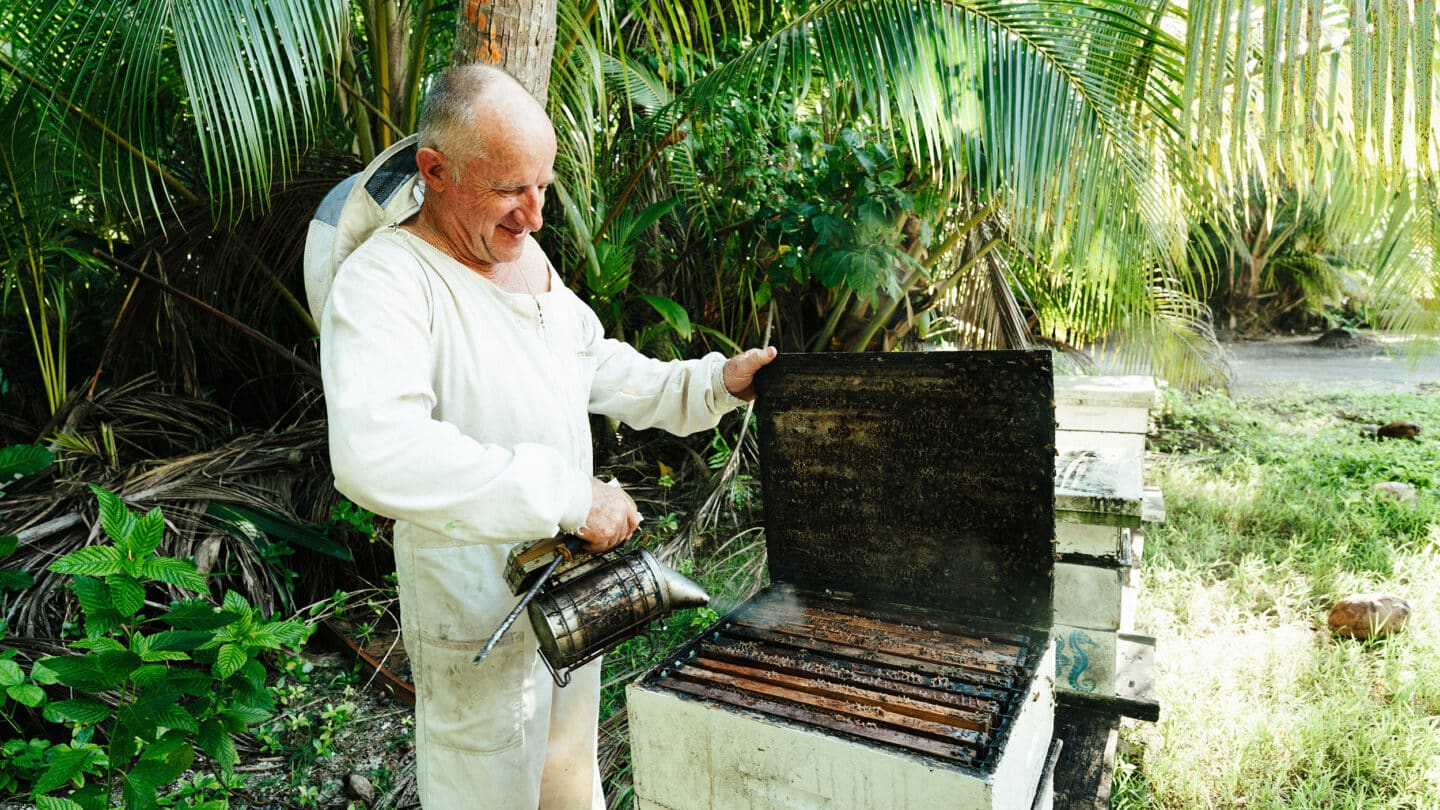
Some of the interesting tasks they do include adding in new frames with fresh beeswax in so bees can fill up with honey during pollen and nectar collecting period, and setting the bee escapes the day before harvesting honey. They will also be expected to check on the general well-being of the hive, make sure there is no ant invasion, and that there is enough freshwater nearby. Though perhaps the most interesting task of a beekeeper is to breed queens and introduce new ones to the hive!
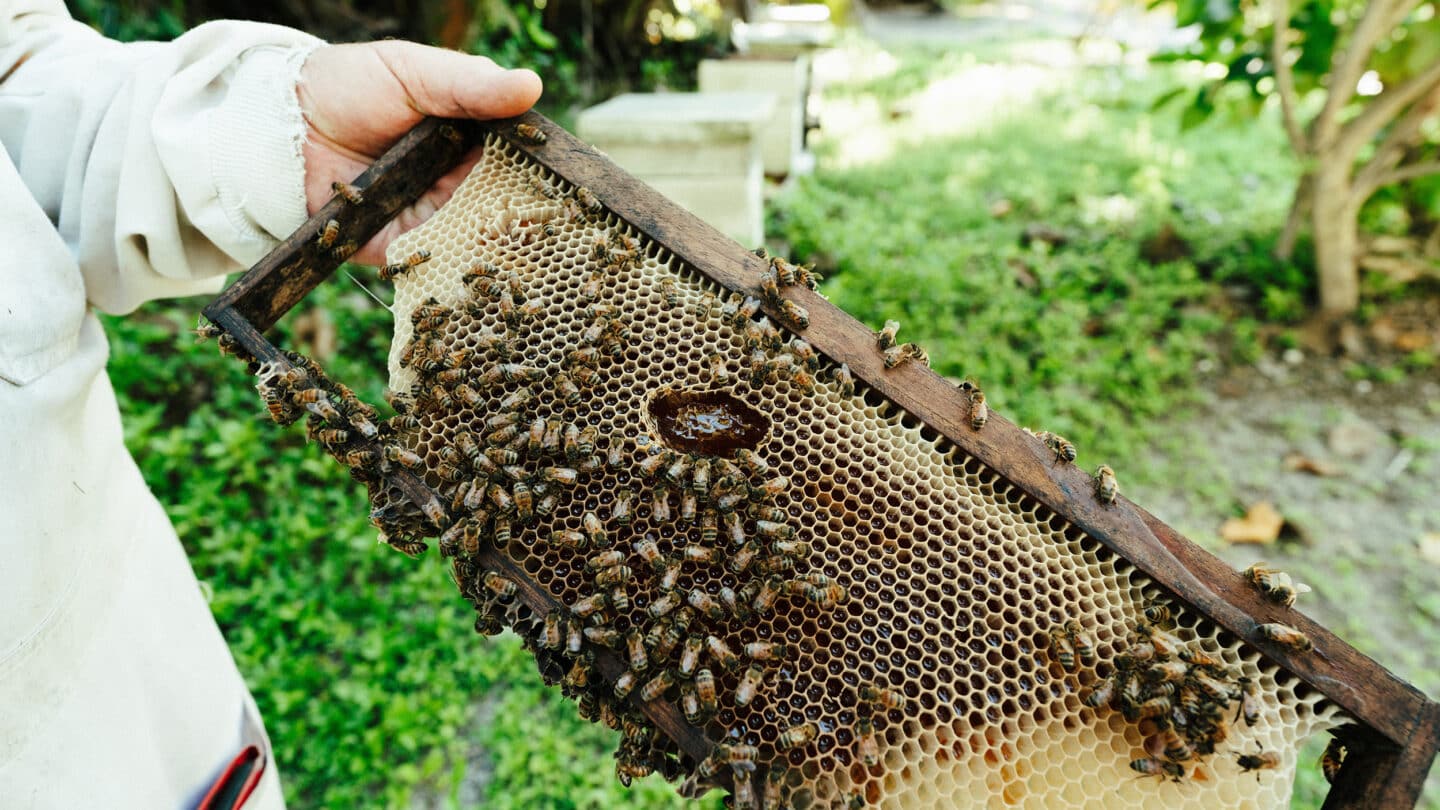
Contact:
Hidden Doorways
Email: mail@hiddendoorwaystravel.com
Website: https://hiddendoorwaystravel.com/
